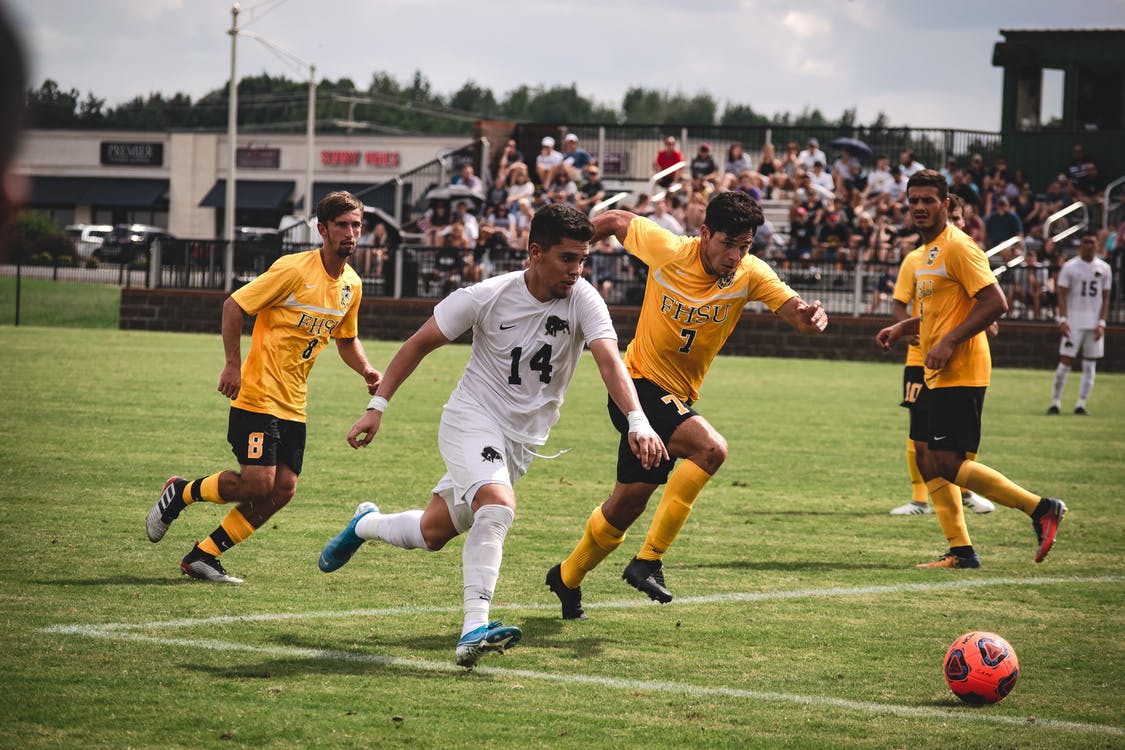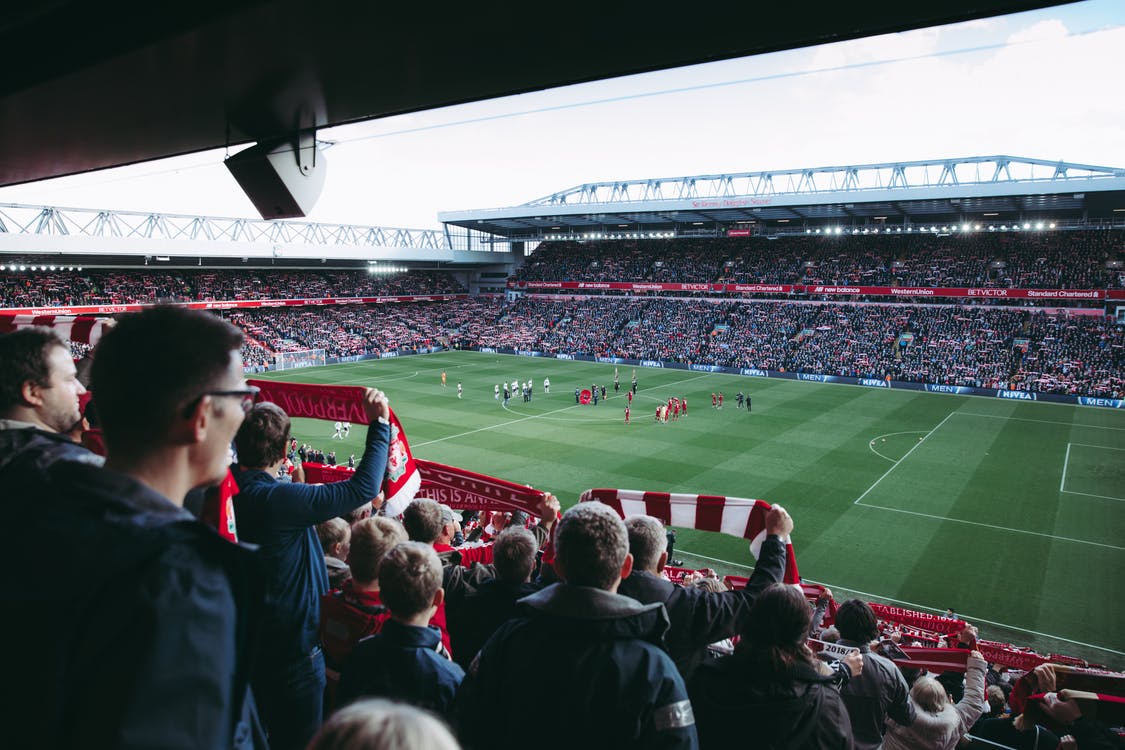Today, we think nothing of having a brand’s logo emblazoned on the shirts of our favourite players. If anything, a kit that doesn’t feature sponsors looks more out of place than one that does.
However, for the majority of football’s history sponsorship and the commercialisation of the sport was frowned upon and even banned for a time.
The Early Days of Football
The football that we know today began in the mid 19th century with the English Football Association (FA) being founded on 26th October 1863. At this time, there was no formal league or cup structures and games were mostly friendly matches that the clubs organised themselves.
It was also problematic that each club had their own rules, so they’d have to negotiate with each other over which regulations to follow ahead of each match. The founding of the FA was an important step in making football a standardised sport with codified rules. In fact, “establishing a definite code of rules” was the founding aim of the FA, and it took six meetings to finalise their first version.
For several years the FA refused to allow players to be paid for their time, effort and talent. It was felt that removing the “amateur” element of the game would damage it. However, they struggled to enforce this as clubs wanted to attract the best talent, so many began to exploit loopholes like paying for “out of pocket expenses” instead.
Eventually, the FA relented and football clubs were permitted to remunerate their players.
A few years later they created the competition that would become the FA Cup that we know today, using a similar knock-out format to the one still in use. While this was vital in growing interest in the sport, it didn’t create enough competitive games to encourage high attendance at matches on a weekly basis.
Friendly games, for which nothing depends on the outcome, are less exciting to fans than games that could result in the awarding of silverware. This became problematic for clubs who had growing amounts of wages to pay since almost all of their income came from ticket sales and any concessions at the stadium.
This saw the creation of the English Football League which would create a competitive atmosphere that would last all season. This system worked great and was bringing fans through the turnstiles, but eventually, more revenue sources were needed.
The First Sponsors in Football
It would be more than 100 years after the founding of the FA that clubs in England would begin to experiment with sponsorship deals.
The first sponsorship of a football competition in England was the Watney Mann Invitation Cup, which ran for just three seasons starting in 1970. In the same year, the Ford Motor Company became the first title sponsor of a reward scheme for clubs in the English Football League.
The first title sponsor for a major competition happened in 1982 when the National Dairy Council signed a £2 million deal to have naming rights of the League Cup. It became known as the “Milk Cup” and has continued to be named in this way since.
After the FA Cup signed its first sponsorship deal with retailer Littlewoods in 1994, all major English football competitions had a title sponsor. However, teams didn’t initially enjoy the same freedom to sign sponsorship deals.

The First Shirt Sponsor and the First Controversy
Kettering Town FC was the first to do it when it signed a deal for a shirt sponsor on 24th January 1976. The deal saw a local company, Kettering Tyres, have its name emblazoned on the front of the club’s shirts.
The deal was reported to have been worth “four figures”, and Kettering Tyres branded shirts were first used in a game against Bath City.
The FA immediately demanded that the sponsorship be removed from Kettering Town’s kit, citing a 1972 ban on sponsorship. However, Kettering pointed out that they had never added it to the written rules of football.
To sneakily get around the rules, Kettering changed the wording on its shirts to say “Kettering T”, which it claimed was short for Kettering Town. The FA saw through this and threatened to hit the club with a £1,000 fine so the club backed down.
Kettering, Bolton Wanderers and Derby County all lobbied the FA to have the ban on shirt sponsorship lifted and in June 1977, the FA relented.
Small Sizes
Logo sizes were limited for clubs in the English Football League in the first years after the ban. This was to avoid upsetting fans, who at the time were less welcoming of sponsors than they are today. It was also because the BBC has rules that don’t allow advertisements in its content, and the league was concerned it would be in breach of this when games were televised.
This didn’t last long though, and soon shirt sponsorship sizes increased. Advertising boards around the edges of the pitch also began to pop up as clubs took advantage of the large audiences they attracted to sell more sponsorship opportunities.
Changing Brands
Today, many clubs and leagues have sponsorship deals with bookmakers. For example, the EFL is sponsored by Sky Bet, a five-star operator according to Oddschecker. Only three of the 20 clubs in the Premier League have a sponsorship deal with an iGaming brand.
This wasn’t always the case though. In the 1980s, technology brands like Candy, Hitachi, and Cannon were big spenders in football. In more recent years, energy drinks like Carabao and Monster Energy have been investing heavily in the sport.
Hundreds of Millions
What started out as a few thousand pounds spent by a local tyre company for a controversial shirt sponsorship has become worth hundreds of millions each year. The shirt sponsorship deals of Premier League teams alone is worth around £200 million annually, with the biggest deal being the £47 million per year agreement between Chevrolet and Manchester United.
Sponsorship has become a big revenue earner for clubs who have diversified their incomes in many ways in the last 50 years. While not much changed during the first 100 years of English football, the sport has become completely unrecognisable in half the time.

